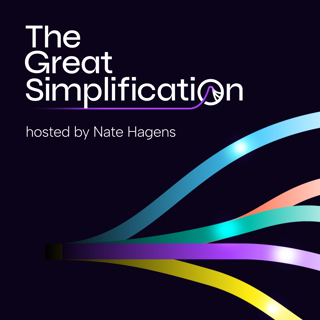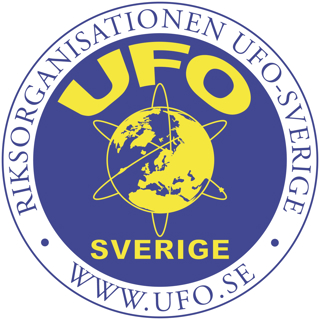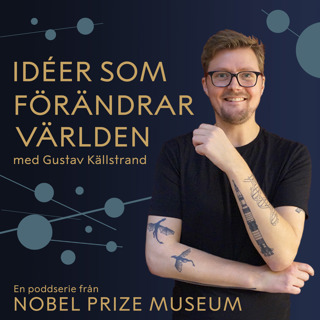
Food & Community in the Ruins: Dougald Hine, Chris Smaje, Pella Thiel | Reality Roundtable #05
On this Reality Roundtable, philosopher and writer Dougald Hine, social scientist and farmer Chris Smaje, and ecologist and farmer Pella Thiel join Nate to discuss the future of food and community. Our disconnected relationship to agriculture and our neighbors have been shaped by a modern industrial society fueled by surplus hydrocarbon energy. What will these relationships look like in a lower energy future, where we need to once again work with each other and the land, rather than in isolation. Can we learn from history to celebrate with each other in times of abundance and find strength in community in times of need? In the present world where people are in constant search for meaning and purpose, what are strategies to find joy in simplicity and well-being through the growing and sharing of food? About Dougald Hine Dougald Hine is a social thinker, writer and speaker. After an early career as a BBC journalist, he co-founded organizations including the Dark Mountain Project and a school called HOME. His latest book is At Work in the Ruins: Finding Our Place in the Time of Science, Climate Change, Pandemics & All the Other Emergencies (2023). He co-hosts The Great Humbling podcast and publishes a Substack called Writing Home. About Chris Smaje Chris Smaje is a writer, social scientist and small-scale farmer, co-running a mixed holding in Somerset, southwest England. He's the author of A Small Farm Future (2020) and Saying NO to a Farm-Free Future (2023), both published by Chelsea Green. He blogs at and is contactable via www.chrissmaje.com. About Pella Thiel Pella Thiel is a maverick ecologist, part-time farmer, full-time activist and teacher in ecopsychology. She is the co-founder of swedish hubs of international networks like Swedish Transition Network and End Ecocide Sweden and a knowledge expert in the UN Harmony with Nature programme. Pella was awarded the swedish Martin Luther King Award in 2023 and the Environmental Hero of the year 2019. Watch on YouTube https://youtu.be/NVeCw-Ljenk Show Notes & Links to Learn More: https://www.thegreatsimplification.com/episode/rr05-hine-smaje-thiel
15 Okt 20231h 28min

The Middle East: Stormwatch | Frankly #46
In this Frankly, Nate shares his perspective on the recent events in the Middle East and how they could lead to a shortening of the timeline to The Great Simplification. For those fortunate to live outside the direct impacts of these conflicts, many feel pressure to stay informed about this turbulent, global landscape. Is it possible to also remain grounded in the present realities of our daily lives? How do individual responses to this past week's geopolitical events vary depending on the livelihood demands of the here and now? Is it possible to live simply in our own lives while also engaging globally ahead of the Great Simplification? For Show Notes and More: https://www.thegreatsimplification.com/frankly-original/46-the-middle-east-stormwatch To Watch on Youtube: https://youtu.be/wODlwoKJEE0
13 Okt 202310min

Arthur Berman: "BRICS+, Strategic Petroleum Reserve & Metaphysics"
On this episode, Art Berman returns to give a broad update on the state of global oil - from BRICS+ and shale oil to the Strategic Petroleum Reserve and oil investment. As Art says, 'oil is the economy' and understanding the complex dynamics of the oil market provides insight into the entire economic system. How do geological luck and foreign policy create the global stage for oil markets? What is the Strategic Petroleum Reserve, have we been misusing it, and does it matter in comparison to larger energy policy blunders? What are the current dynamics affecting oil prices and how will this affect the long term out-look of oil availability? Please note: this episode was recorded prior to the Israel/Palestine events of last weekend. About Arthur Berman Arthur E. Berman is a petroleum geologist with 36 years of oil and gas industry experience. He is an expert on U.S. shale plays and is currently consulting for several E&P companies and capital groups in the energy sector. Watch on YouTube: https://youtu.be/n-IetuaYLmw More info, and show notes: https://www.thegreatsimplification.com/episode/92-art-berman
11 Okt 20231h 32min

One Ring to Rule Them All | Frankly #45
In this Frankly, Nate refers to a favorite timeless book series, The Lord of the Rings, to describe 'the nine rings for mortal men' - behavioral tendencies that are common among humans based on our evolutionary nature but become counterproductive within modern culture. These traits drive the growth of the Superorganism through 'one ring to rule them all', the amassing of power and the synergy of agricultural surplus, fossil energy, money, and Artificial Intelligence. Can this out of control power dynamic be broken and redirected away from the influence of the One Ring? Will we have the courage and wisdom to stop our drive to amass power as we approach the Great Simplification? For Show Notes and More: https://www.thegreatsimplification.com/frankly-original/45-one-ring-to-rule-them-all To Watch on Youtube: https://youtu.be/zXgIAQZu3I4
6 Okt 202316min

Luke Gromen: "Peak Cheap Oil and the Global Reserve Currency"
On this episode, financial analyst Luke Gromen joins Nate to discuss how the availability of cheap energy has underpinned our current financial architecture and expectations - and what peak cheap oil implies for the future. A central part of this story is the rise of the US dollar as a global reserve currency tightly linked with the ability to purchase oil - subsequently leading to the US becoming a major exporter of debt. How have countries with economies based on natural resources and manufacturing differed in their response to geopolitical uncertainty in comparison to those who are based around finance and the service industry? What might the response be from countries holding US debt in anticipation of a declining oil supply? What does this mean for the future of global currencies in a simplified global economy and a finance system that will eventually need to be re-tethered to the finite nature of Earth? About Luke Gromen: Luke Gromen is the Founder and President of research firm Forest For The Trees, LLC, whose goal is to aggregate a wide variety of macroeconomic, thematic and sector trends in an unconventional manner to identify investable developing economic bottlenecks for clients. Luke founded FFTT to apply what clients and former colleagues consistently described as a "unique ability to connect the dots" during a time when he saw an increasing "silo-ing" of perspectives occurring on Wall Street and in corporate America. Luke has 25 years of experience in equity research, equity research sales, and as a macro/thematic analyst. He holds a BBA in Finance and Accounting from the University of Cincinnati and received his MBA from Case Western Reserve University. He earned the CFA designation in 2003. For Show Notes and More visit: https://www.thegreatsimplification.com/episode/91-luke-gromen To watch this video episode on Youtube → https://youtu.be/bIq0o40Jo80
4 Okt 20231h 31min

Nick Haddad: "Insects - A Silent Extinction"
On this episode, Nate is joined by Professor Nick Haddad, a conservation scientist with a focus on butterflies and other insects. Nick unpacks what decades of research have indicated about the declining state of insect populations, which act as the foundation of critical ecosystem functions. The overlooked degradation of butterflies, beetles, bees, ants, ladybugs, and countless other species have huge ripple effects across our local and global ecological functions - from a loss of bird populations to a reduced ability to grow food. Why are we not more concerned about the health and vitality of these critical organisms? Can humans - or life as we know it - survive without these little creatures? What can we do as individuals, businesses, and governments to help insects rebound as quickly as possible, and in turn strengthen the health of everything else. About Nick Haddad Professor Nick Haddad is co-lead of the Long Term Ecological Research site at Kellogg Biological Station at Michigan State University. He leads decades-long, landscape-scale experiments that bring scientific principles to conservation actions. He studies how landscape diversity, including prairie strips through croplands, affect biodiversity, especially of plants and insects, and of ecosystem services including pollination, biocontrol, and decomposition. For three decades he has led the world's largest experiment testing the role of landscape corridors in increasing dispersal of most plant and animal species, and increasing plant diversity. He has conducted long-term restoration experiments to guide conservation of rare butterflies in the face of climate and land use change. Nick brings together ideas in science and management through ConservationCorridor.org. Watch on YouTube: https://youtu.be/_qzS5Nig4_w Show notes and more info: https://www.thegreatsimplification.com/episode/90-nick-haddad
27 Sep 20231h 26min

Sian Sutherland: "Innovating the Business of Plastics"
On this episode, Nate is joined by Sian Sutherland, a leader in the movement towards reducing the overconsumption of plastic and its waste. The modern era is dependent on fossil fuels for many reasons - one of the most covertly ubiquitous ones being plastic. Everyday we are surrounded by it - encasing our food, woven in the threads of our clothes, and even permeating into the water that we drink. How do we begin to break off this addiction to the convenience and utility of plastics? How does this connect to the larger implications of a society embedded in a linear, consumption-based system dependent on growth? What role can industry, governments, and individuals each play in creating structural shifts to reduce our reliance on plastic - and ultimately return to a slower, more circular way of life? About Sian Sutherland Sian Sutherland is Co-founder of A Plastic Planet, one of the most recognised and respected organizations tackling the plastic crisis. More recently, she also co-founded PlasticFree, the first materials and systems solutions platform, empowering the 160m global creatives to design waste out at the source. Sian was awarded the Female Marketer of the Year, Entrepreneur of the Year, and British Inventor of the Year. In 2023 at the UN Plastics Treaty negotiations (INC2), in partnership with Plastic Soup Foundation, A Plastic Planet launched the Plastic Health Council, bringing expert scientists to the negotiating process with the irrefutable proof of plastic chemicals impact on human health. Passionately pro-business and solutions focused, Sian believes the plastic crisis gives mankind a rare gateway to change both materials and systems to create a different future for next generations. Watch on YouTube: https://youtu.be/jTs6KejhSg4 More Info & Show Notes: https://www.thegreatsimplification.com/episode/89-sian-sutherland
20 Sep 20231h 15min

Robert Sapolsky: "The Brain, Determinism, and Cultural Implications"
On this episode, neuroscientist and author Robert Sapolsky joins Nate to discuss the structure of the human brain and its implication on behavior and our ability to change. Dr. Sapolsky also unpacks how the innate quality of a biological organism shaped by evolution and the surrounding environment - meaning all animals, including humans - leads him to believe that there is no such thing as free will, at least how we think about it today. How do our past and present hormone levels, hunger, stress, and more affect the way we make decisions? What implications does this have in a future headed towards lower energy and resource availability? How can our species manage the mismatch of our evolutionary biology with our modern day challenges - and navigate through a 'determined' future? About Robert Sapolsky: Robert Sapolsky is professor of biology and neurology at Stanford University and a research associate with the Institute of Primate Research at the National Museum of Kenya. Over the past thirty years, he has divided his time between the lab, where he studies how stress hormones can damage the brain, and in East Africa, where he studies the impact of chronic stress on the health of baboons. Sapolsky is author of several books, including Why Zebras Don't Get Ulcers, A Primate's Memoir, Behave: The Biology of Humans at Our Best and Worst, and his newest book coming out in October, Determined: Life Without Free Will. He lives with his family in San Francisco. Watch this video episode on YouTube: https://youtu.be/xhobcj2K9v4 For Show Notes and More visit: https://www.thegreatsimplification.com/episode/88-robert-sapolksy
13 Sep 20231h 57min




















